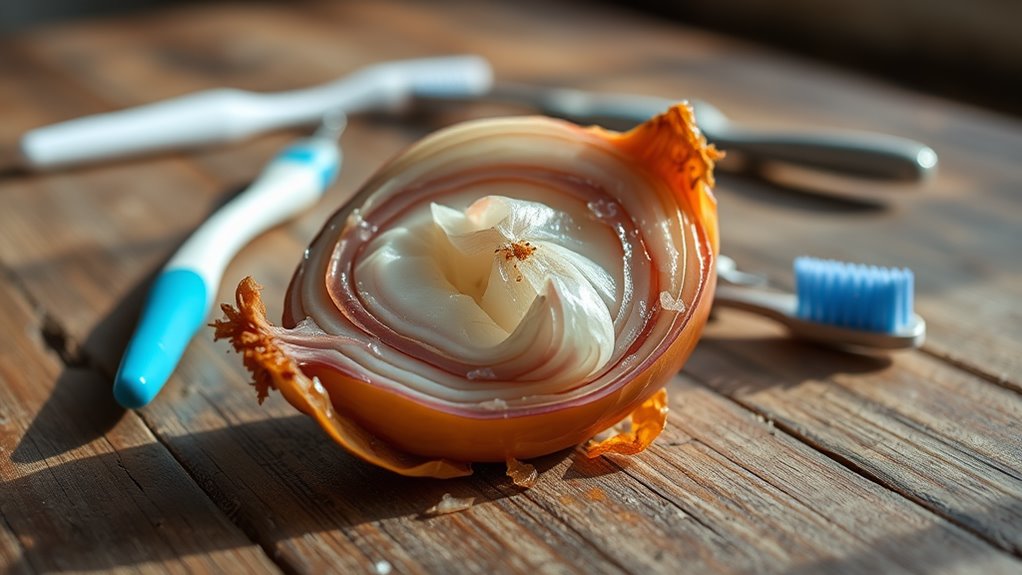This Common Habit Could Be Making Your Dental Fear WORSE!
You’ve probably spent hours searching online about dental procedures, convinced you’re preparing yourself for your next appointment. But this seemingly innocent habit might actually be intensifying your dental anxiety. When you dive into endless forums and review sites, you’re feeding your brain a steady diet of fear-inducing content that reinforces your worst concerns. There’s a psychological reason why this digital deep-dive makes your dental fears worse—and it’s more common than you think.
Understanding the Link Between Online Research and Dental Anxiety
Although the internet provides valuable dental health information, excessive online research about dental procedures often intensifies anxiety and fear. When you spend hours scrolling through dental horror stories and worst-case scenarios, you’re making a common dental fear mistake that can spiral into paralyzing anxiety.
Your brain naturally gravitates toward negative information, making you more likely to focus on and remember distressing dental experiences shared online. This selective attention reinforces your fears and creates a skewed perception of dental procedures. Instead of empowering yourself with knowledge, you might be unconsciously building a fortress of fear.
To break this cycle, limit your dental research to reputable sources and focus on positive outcomes. Consider connecting with your dentist directly to address specific concerns. They can provide accurate, personalized information that’s far more relevant than anonymous online accounts that might trigger or worsen your dental anxiety. Additionally, practicing controlled breathing techniques can help calm nerves before and during dental visits.
Why Horror Stories and Negative Reviews Feed Your Fears
When you encounter dental horror stories and negative reviews online, your mind’s natural negativity bias kicks in, making these dramatic tales particularly memorable and influential. Your brain automatically gives more weight to negative experiences than positive ones, a survival mechanism that’s now working against you in the digital age.
These frightening accounts trigger your amygdala, the brain’s fear center, creating a feedback loop that reinforces your dental anxiety. You’ll start focusing exclusively on worst-case scenarios, dismissing thousands of successful procedures in favor of a few dramatic outliers.
Every negative review you read strengthens neural pathways associated with dental fear, making it increasingly difficult to maintain perspective. Additionally, gum disease can significantly impact heart health, highlighting the importance of regular dental care and the potential consequences of neglecting oral hygiene.
To break this cycle, you need to actively counterbalance negative content. Search specifically for positive experiences, successful procedures, and innovative dental techniques.
Remember that satisfied patients rarely write reviews, while those with negative experiences are highly motivated to share their stories.
The Psychological Impact of Dental Information Overload
The endless stream of dental information available online can quickly become overwhelming, creating a new layer of anxiety beyond traditional dental fears.
When you’re constantly bombarded with dental content, your brain can struggle to process and prioritize what’s truly relevant to your situation.
Information overload triggers stress responses that can amplify your existing dental anxieties and create new ones.
You’ll find yourself caught in a cycle of seeking more information while becoming increasingly paralyzed by the volume of often contradictory advice.
- Your brain’s natural filtering system becomes overloaded, making it harder to make confident decisions about dental care.
- Constant exposure to dental content keeps oral health concerns at the forefront of your mind.
- Multiple competing sources of information create decision paralysis and increased uncertainty.
- Your ability to distinguish between credible and unreliable dental information diminishes as volume increases.
To mitigate this, remember that maintaining good oral hygiene supports overall health and can reduce anxiety related to dental issues.
Take control by limiting your dental research to specific, trusted sources and scheduled time blocks.
Breaking Free From the Digital Anxiety Spiral
Since digital platforms constantly feed your dental anxieties, breaking free requires deliberate steps to regain control of your online habits. You’ll need to reset your relationship with dental information consumption while maintaining a healthy level of awareness.
| Anxiety-Inducing Habits | Empowering Alternatives |
|---|---|
| Endless symptom searching | Schedule a consultation |
| Reading worst-case scenarios | Focus on success stories |
| Following fear-based content | Join positive dental communities |
| Late-night procedure research | Set designated research times |
| Comparing horror stories | Track your progress journey |
Transform your digital dental experience by setting boundaries on your search behavior. Install website blockers, limit social media consumption about dental procedures, and create a curated list of trusted professional sources. You’ll find that reducing your digital dental content intake actually increases your confidence and reduces procedure-related stress. Replace passive scrolling with active engagement in dental wellness communities that promote education over fear-mongering. Additionally, remember that open communication with the dentist can lead to a more comfortable experience and help alleviate anxiety.
Building Healthy Information-Seeking Habits for Dental Care
Learning to find accurate dental information requires developing smart research habits that protect your peace of mind. You’ll want to approach dental research strategically, focusing on credible sources while avoiding anxiety-triggering content that could worsen your fears.
-
Stick to reputable dental association websites and academic institutions rather than random health blogs or social media posts that might sensationalize dental procedures.
-
Set specific time limits for researching dental topics – don’t fall into endless browsing that amplifies anxiety.
-
Create a curated list of trusted dentists’ educational resources and bookmark them for future reference.
-
Take notes during dental consultations so you won’t need to search online for information you’ve already discussed.
Remember to balance your need for dental knowledge with maintaining emotional wellbeing. When you establish boundaries around your information-seeking habits, you’ll feel more empowered to make informed decisions about your dental care without feeding into fear cycles. Additionally, practicing relaxation techniques can significantly help mitigate anxiety leading up to your appointment.




